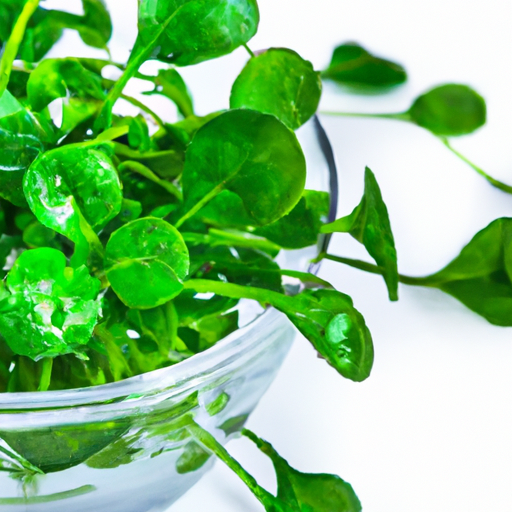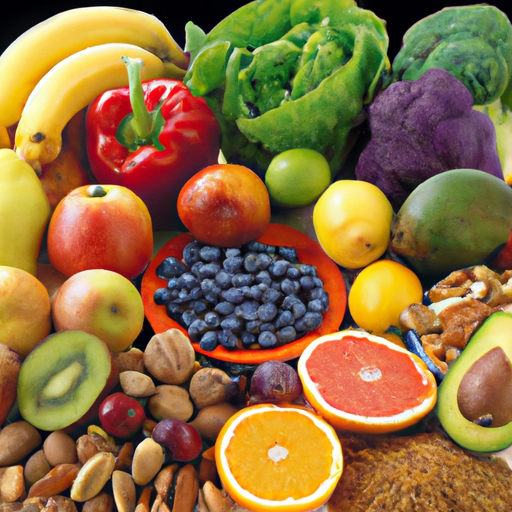Are you searching for a nutrient-packed vegetable that can enhance your overall health? Look no further than watercress! With its impressive array of vitamins, minerals, and bioactive compounds, this leafy green has earned the title of “world’s healthiest vegetable” according to the CDC. Not only does watercress contain anti-inflammatory compounds like Phenethyl isothiocyanate (PEITC), which have been linked to reducing the growth of certain cancer cells, but it also packs a punch when it comes to supporting heart health, bone health, and eye health. Additionally, this low-calorie powerhouse is rich in essential minerals for bone health and contains bioactive compounds with anticancer properties. In this article, we’ll take a closer look at the health benefits of watercress and delve into its impressive nutrients and compounds. Get ready to discover a simple, yet powerful addition to your diet that could transform your well-being!

The Health Benefits of Watercress
Introduction to watercress and its reputation as the ‘world’s healthiest vegetable’
Watercress, also known as Nasturtium officinale, holds the prestigious title of being dubbed the “world’s healthiest vegetable” by the CDC. This leafy green vegetable is known for its crisp texture and peppery flavor, making it a versatile addition to various dishes. But beyond its taste, watercress packs a punch when it comes to its numerous health benefits. From its rich content of anti-inflammatory compounds to its role in supporting heart health and promoting bone health, watercress proves to be a nutritional powerhouse.
The rich content of anti-inflammatory compounds in watercress
One of the key factors that contribute to watercress’s reputation as a superfood is its rich content of anti-inflammatory compounds. Phenethyl isothiocyanate (PEITC), a prominent compound found in watercress, has been extensively studied for its potential health benefits. Research suggests that PEITC possesses strong anti-inflammatory properties, which may play a role in reducing the risk of chronic inflammation-related conditions, such as cardiovascular disease, diabetes, and certain types of cancer.
The link between anti-inflammatory compounds and the reduction of certain cancer cells
Studies have shown promising evidence regarding the potential of watercress in reducing the growth of certain cancer cells. The anti-inflammatory compounds found in watercress, including PEITC, have demonstrated anticancer properties by inhibiting the growth of cancer cells and inducing cell death in laboratory studies. While more research is needed to fully understand the mechanisms behind this effect, the findings suggest that watercress may have a role to play in cancer prevention and treatment.
Vitamin K and its Role in Health
The importance of vitamin K in blood clotting
One of the key nutrients found in watercress is vitamin K, which plays a crucial role in blood clotting. Vitamin K is necessary for the activation of proteins involved in the blood coagulation process, ensuring that wounds are properly sealed and bleeding is stopped efficiently. Adequate vitamin K intake helps maintain a healthy blood clotting system and reduces the risk of excessive bleeding.
Vitamin K’s contribution to bone health
In addition to its role in blood clotting, vitamin K is also essential for maintaining optimal bone health. Vitamin K is involved in the production of proteins that regulate calcium balance in bones, ensuring that calcium is properly utilized and deposited in bone tissue. A deficiency in vitamin K can result in impaired bone mineralization, increasing the risk of osteoporosis and fractures. Watercress, being rich in vitamin K, can help support bone health when consumed as part of a balanced diet.
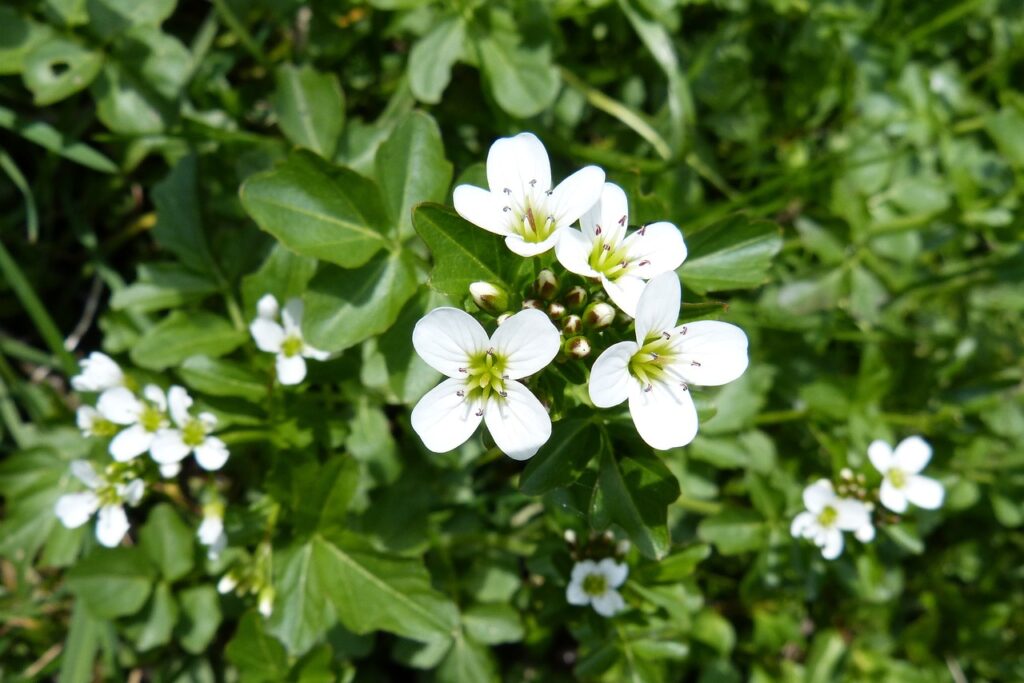
Heart Health Support from Watercress
Calcium in watercress and its benefits for heart health
Calcium, a mineral commonly associated with strong bones, also plays a vital role in maintaining a healthy heart. Adequate calcium intake is crucial for the proper functioning of the heart’s electrical system, ensuring regular heartbeats and preventing arrhythmias. Watercress serves as an excellent source of calcium, making it a heart-healthy addition to your diet.
The role of magnesium in maintaining a healthy heart
Another mineral that contributes to heart health and is found in watercress is magnesium. Magnesium is involved in various functions within the cardiovascular system, including promoting relaxation of blood vessels, maintaining healthy blood pressure levels, and supporting proper heart rhythm. By including watercress in your meals, you can increase your magnesium intake and support the overall health of your heart.
Potassium and its contribution to heart health
Potassium, an essential mineral for maintaining heart health, can also be obtained from watercress. Adequate potassium intake helps regulate blood pressure, prevent the risk of stroke, and support overall cardiovascular health. Including watercress in your diet is a delicious and nutritious way to boost your potassium intake and support a healthy heart.
Watercress and Eye Health
The potential protective effects of watercress against macular degeneration
Macular degeneration is a condition that affects the central part of the retina, leading to vision loss over time. Research suggests that the antioxidants present in watercress, such as lutein and zeaxanthin, may offer protective effects against macular degeneration. These antioxidants help filter harmful blue light and reduce oxidative stress on the retina, thereby supporting eye health and potentially reducing the risk of age-related macular degeneration.
Lutein and zeaxanthin in watercress and their role in supporting eye health
Lutein and zeaxanthin are carotenoid pigments that accumulate in the retina and lens of the eye. These antioxidants act as natural sunscreens, protecting the eye tissues from damage caused by ultraviolet radiation. Watercress is a great source of lutein and zeaxanthin, making it a valuable addition to a diet aimed at promoting and maintaining good eye health. By incorporating watercress into your meals, you can support your eyes’ well-being and potentially reduce the risk of eye conditions associated with aging.
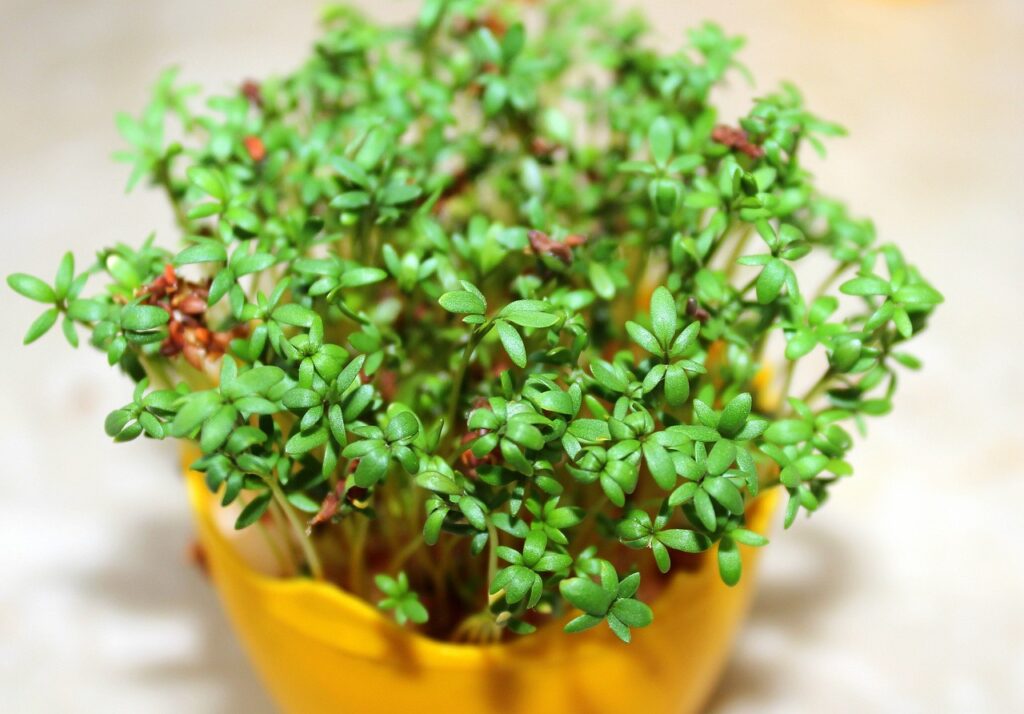
The Role of Watercress in Bone Health
The essential minerals in watercress that support bone health
Watercress contains a variety of essential minerals that play a vital role in maintaining optimal bone health. These minerals include calcium, magnesium, potassium, and phosphorus, all of which are necessary for the formation and maintenance of strong bones.
Calcium and its importance for strong bones
Calcium is well-known for its importance in building and maintaining strong bones. Adequate calcium intake throughout life is essential to achieve peak bone mass and prevent the onset of osteoporosis later in life. Watercress provides a valuable source of calcium, ensuring that your bones receive the necessary support for strength and integrity.
Magnesium, potassium, and phosphorus as contributors to bone health
Beyond calcium, watercress also provides essential minerals like magnesium, potassium, and phosphorus that contribute to overall bone health. Magnesium plays a vital role in bone formation, as it is involved in the synthesis of bone proteins and the activation of enzymes that regulate bone metabolism. Potassium helps maintain optimal bone density by neutralizing acids that can leach calcium from bones. Phosphorus is a key component of the mineral matrix that gives bones their structural strength. By consuming watercress regularly, you can support your bones with the necessary minerals for optimal health.
Nutrient-Density of Watercress
The low-calorie nature of watercress
If you are looking for a nutrient-dense food that won’t break the calorie bank, watercress is an excellent choice. Watercress is low in calories, making it a great addition to any diet focused on weight management or overall health.
The variety of nutrients provided by watercress
While watercress may be low in calories, it certainly doesn’t skimp on nutrients. This verdant vegetable provides a wide array of vitamins and minerals, including vitamins A, C, E, and K, as well as folate, calcium, magnesium, and potassium. By incorporating watercress into your meals, you can enjoy a burst of essential nutrients that contribute to overall health and well-being.
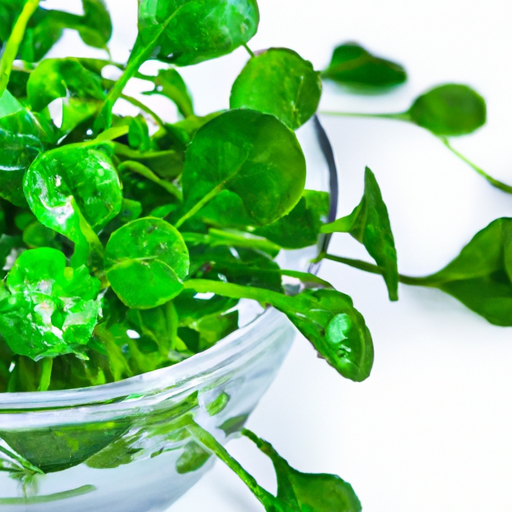
Bioactive Compounds in Watercress
Glucosinolates in watercress and their significance
Watercress contains an important group of bioactive compounds known as glucosinolates. These compounds are responsible for the distinct flavor and pungency of watercress and other cruciferous vegetables. Glucosinolates have been extensively studied for their potential health benefits, particularly their role in cancer prevention and anti-inflammatory properties.
The anticancer properties of glucosinolates
Research suggests that the glucosinolates in watercress possess anticancer properties, as they are converted into bioactive compounds when consumed. These bioactive compounds have been shown to inhibit the growth of different cancer cells and promote their destruction. While further research is needed to fully understand the mechanisms and potential applications, incorporating watercress into a balanced diet may have a protective effect against certain types of cancer.
The inhibition of cancer cell growth by bioactive compounds in watercress
In addition to their anticancer properties, bioactive compounds from watercress have also been found to inhibit cancer cell growth. Various studies have demonstrated that these compounds can disrupt the formation of new blood vessels that supply oxygen and nutrients to tumors, thereby impeding cancer cell growth and potentially suppressing tumor development. While more research is needed, incorporating watercress into your diet can be a delicious and nutritious way to potentially support your body’s defenses against cancer.
In conclusion, watercress is not just a leafy green vegetable with a peppery taste, but it is also a nutritional powerhouse. With its rich content of anti-inflammatory compounds, such as PEITC, watercress may help reduce the risk of chronic inflammation-related conditions and inhibit certain cancer cell growth. Vitamin K in watercress supports blood clotting and bone health, while minerals like calcium, magnesium, and potassium contribute to heart health and bone health. Watercress may also provide protective effects against macular degeneration due to its lutein and zeaxanthin content. With its nutrient density and bioactive compounds like glucosinolates, watercress offers a variety of nutrients and potential anticancer properties. So, why not add this ‘world’s healthiest vegetable’ to your diet and reap the many health benefits it has to offer?

